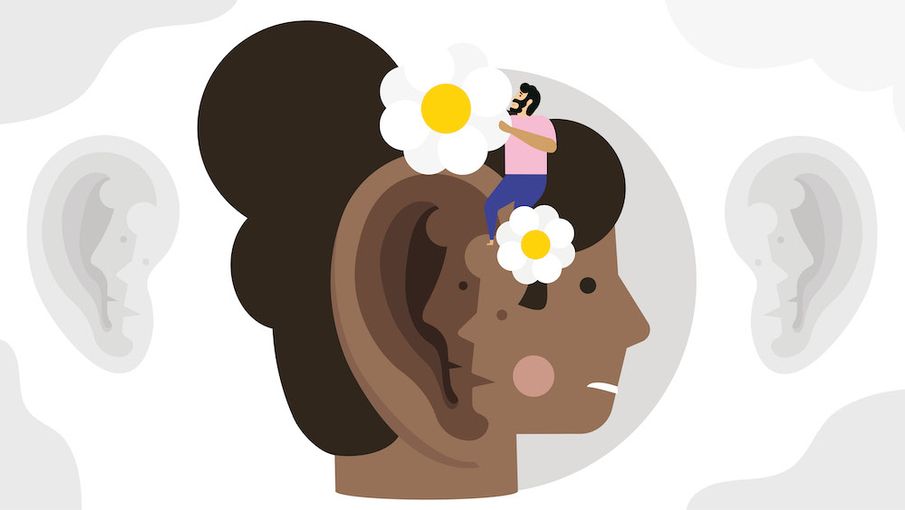Someone with voices in their head may be frightened, anxious, fragile, and vulnerable. But don’t be daunted – here’s what you can do to support them through their torment
Hearing voices comes in many guises. The voices can be comforting and neutral – but sometimes they can be terrifying. Hearing voices is common in some mental illnesses, such as bipolar disorder, schizophrenia, and borderline personality disorder. But you can hear voices without being mentally ill, such as when grieving.
Between 3% and 10% of the general population hear voices that other people do not, according to the Hearing Voices Network charity.
I have been hearing voices during periods of mania and depression, as part of my bipolar disorder, since I was a teenager. They’ve ranged from a voice almost like a best friend, to one that will shout and scream vicious words at me. Over the years I’ve opened up about my experiences, and have learnt to live with what I hear.
It’s important to know that even though it can seem daunting to help someone when they’re struggling with hearing voices, there are simple steps you can take to provide support.
1. Don’t panic
It’s likely that someone hearing voices is in a fragile, vulnerable place. Panicking about what to do could make them feel stressed and anxious, which might amplify the experience. When I’ve been hearing voices, I can often almost see the gears in people’s heads going into overdrive.
The vast majority of people who hear voices are just struggling with what they’re hearing, and are not a danger to anyone else. If you’re worrying about what you can do, then ask.
You don’t need all the answers. It’s just important to stay calm to not add to the fear and anxiety they may already be feeling.

2. Sit with them
The simplest action, and often the most genuinely useful, is just sitting and being there.
When you hear voices you feel out of touch with reality. It can be an intense and scary experience. You’re not always sure what’s real and what isn’t. It creates a surge of fear and anxiety.
I find that having someone sit with me helps to ground me. Knowing the person next to me is real, and I can talk to them if I need to, is a huge source of comfort. It’s a really simple act that can make a huge difference.
3. Talk
About literally anything – the weather, or the surroundings. Tell them your life story. It can be as mundane or as interesting as you’d like. The idea is to help the person focus on what you’re saying, rather than the voices. Hearing a voice can help the person you’re with concentrate on something that is real and tangible. The more relaxed and chilled out you can be, the better.
4. Distract
Similar to talking, distraction helps draw their attention away from the voices. If you’re not sure what to say, this might be the best option.
Encourage them to use their hobbies and interests as a distraction. Also put yourself in their shoes and think about how you’d like to be treated. When they’re feeling better, perhaps ask them about techniques they find helpful, so you know how best to help next time. It might be as simple as listening to music in their headphones until the voices subside.
5. Rationalise
Helping them to rationalise the experience may reduce the fear. The voices might be cruel, or telling them to hurt themselves. It’s important to tell them the voices aren’t real, and can’t cause them harm. It might be scary right now, but identifying that these are voices in their head is a vital distinction to make. It’s like having a panic attack – they’re not going to die. Repeating this, like a mantra, can give them the strength to ride out the experience.
To find a professional counsellor or therapist, visit Counselling Directory.



Comments